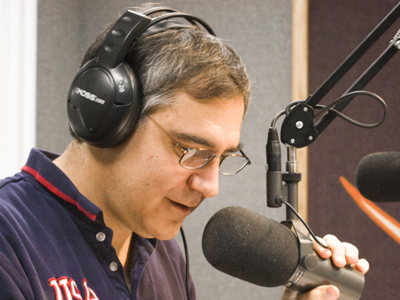
David John Marotta was interviewed on radio 1070 WINA’s Schilling Show discussing Margaret Thatcher and her economics.
Listen to the radio show:
“Never compromise on conservatism,” and “When in doubt, fight,” were two of Thatcher’s slogans.
Related Articles
We have no secret ingredient at Marotta Wealth Management. Instead, we openly and publicly publish our strategies as articles on our website. |
Austin Fey
Wealth Manager
Austin Fey is a Wealth Manager at Marotta Wealth Management, specializing in charitable giving and asset allocations. She is a regular contributor to our Marotta On Money articles, often giving advice to those just getting started in finance.
Latest posts from Austin Fey
- #TBT How to Make a Financial Independence Bucket - July 4, 2024
- 2024 Tax Facts - November 13, 2023
- #TBT Harvest Major Capital Losses Whenever You Have Them - October 26, 2023
David John Marotta
President, CFP®, AIF®, AAMS®
David John Marotta is the Founder and President of Marotta Wealth Management. He played for the State Department chess team at age 11, graduated from Stanford, taught Computer and Information Science, and still loves math and strategy games. In addition to his financial writing, David is a co-author of The Haunting of Bob Cratchit.
Latest posts from David John Marotta
- #TBT A Review of Finances at Age 60 - July 25, 2024
- #TBT Implement the Automatic Millionaire at Schwab - July 18, 2024
- #TBT Stress Is Not Your Enemy - June 27, 2024
2 Responses
Tim
Hi David,
I am going to be doing a presentation that is based off of your great retirement article that likens the path to retirement to the Oregon Trail. Why do you recommend saving 15 percent of your lifestyle spending and not 15 of your annual income? My wife asked me as I was running through the presentation and I couldn’t give here a good answer. Please get back to me as soon as possible!! Love your work!
Megan Russell
Hey Tim,
I’m glad that you’ve found our information helpful enough to share it! Where are you giving your presentation? If you’re recording it, I’d love to get to see the video or hear the recording.
The article you are referencing is called How Much Should I Save for Retirement?.
The reason you save 15% of your lifestyle rather than 15% of your annual income is because your lifestyle is everything you expect to keep spending in retirement. It’s all the categories of your budget: food, shelter, clothing, charitable giving, transportation, gifts, vacations, medical, etc. For most people it’s notably not, kid’s college savings, buying a business, buying real estate, high income taxes, 401(k) contributions, etc. because those expenses will not continue in retirement.
For many people, lifestyle and annual income are the same, but for many others, especially small business owners, their lifestyle might only be a fraction of the money they spend.
Because the 15% you tuck away at age 25 (year one of your saving) will be ready for you as 100% 40 years from now at age 65 (year one of retirement) and because the 15% you tuck away at age 45 (year twenty of your saving) will be ready for you as 100% 40 years from now at age 85 (year twenty of retirement), making it 15% of your annual income, rather than of your lifestyle as we recommend, means you’ll have 100% of your annual income ready for you 40 years from now. If your lifestyle is only a fraction of your annual income, then saving so that you can have 100% of your annual income again in retirement will just make you either have a lot of extra cash to burn through or an excessively large estate when you a die.
I hope this helps!